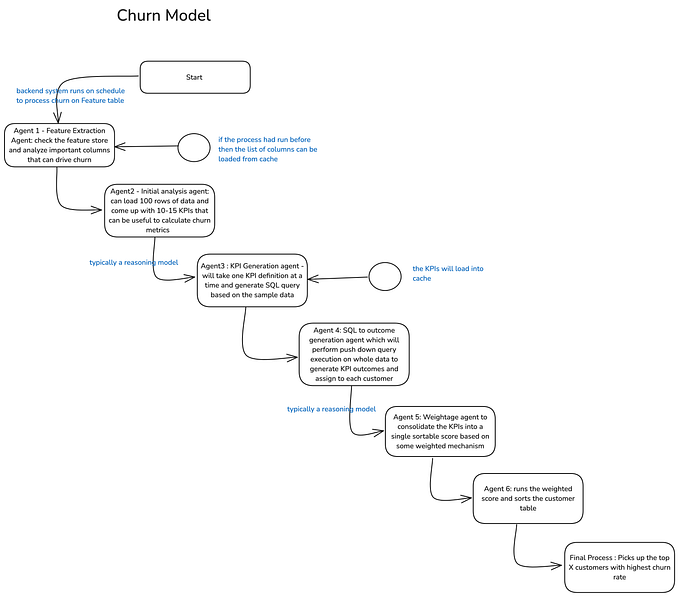Key Technologies Driving Modern Machine Manufacturing
We all know that technology is playing a vital role in the industry, and the machine materials manufacturing company landscape is radically transforming. Technological advancements continue to shape industries, so the manufacturing sector has not been left behind.

Modern machine manufacturing has seen significant improvements driven by innovative technologies. These technologies have not only enhanced efficiency but have also opened up new possibilities for the industry. In this article, we will explore the Key Technologies Driving Modern Machine Manufacturing.
I. Artificial Intelligence (AI) and Machine Learning
Artificial intelligence (AI) and machine learning (ML) have significantly impacted manufacturing machines and materials manufacturing firms.
These tools can swiftly and reliably analyze massive volumes of data, giving producers insightful information. Here’s how AI and ML are transforming modern machine manufacturing:
Predictive Maintenance:
AI-powered predictive maintenance systems monitor machines in real-time, analyzing sensor data to predict when equipment will likely fail. This allows companies to schedule maintenance proactively, reducing downtime and minimizing production interruptions.
Quality Control:
Machine learning algorithms can detect defects and anomalies in real-time during manufacturing. This ensures that products meet the highest quality standards, reducing waste and production costs.
Production Optimization:
AI algorithms optimize production processes by analyzing historical data and making real-time adjustments. This increases efficiency, reduces energy consumption, and improves overall productivity.
II. Internet of Things (IoT)
The Internet of Things (IoT) has revolutionized the packaging machines and materials manufacturing company landscape by connecting machines and devices to the Internet.

This connectivity allows for seamless communication and data exchange between machines and central control systems. Here’s how IoT is reshaping modern machine manufacturing:
Remote Monitoring and Control:
IoT sensors installed on machines provide real-time data that can be monitored remotely. This enables manufacturers to oversee production processes from anywhere in the world, making it easier to manage multiple facilities.
Inventory Management:
IoT systems can track the usage of raw materials and components, automatically triggering reorders when supplies are low. This ensures a streamlined supply chain and reduces the risk of production delays due to material shortages.
Energy Efficiency:
IoT sensors can track energy use in real-time, enabling manufacturers to spot and fix inefficiencies. This not only reduces operational costs but also contributes to sustainability efforts.
III. Robotics and Automation
Robotics and automation have been integral to modern machine manufacturing for several decades, but recent advancements have taken these technologies to new heights. Robots are now more versatile, intelligent, and capable of performing various tasks.
Here’s how robotics and automation are shaping the future of manufacturing:
Flexible Manufacturing:
Collaborative robots, or cobots, can work alongside human workers safely. They are simple to reprogram to carry out various duties, making it easy to swiftly adjust to shifting production demands.
Precision and Consistency:
Robots excel at repetitive and precise tasks, ensuring consistent product quality. This is crucial in fields like aerospace and the production of medical devices, where accuracy is essential.
Speed and Efficiency:
Manufacturing is boosted, and labour expenses are decreased because automated manufacturing lines are quicker and more effective than human labour.
This allows machines and materials manufacturing companies to meet growing market demands.
IV. 3D Printing and Additive Manufacturing
3D printing, also known as additive manufacturing, has gained significant attention in recent years due to its ability to revolutionize products. This technology builds objects layer by layer, offering several advantages for the machines and materials manufacturing company industry:

Rapid Prototyping:
3D printing allows manufacturers to create prototypes and iterate on designs without expensive tooling quickly. This accelerates the product development process and reduces time-to-market.
Complex Geometries:
Additive manufacturing enables the production of intricate and intricate parts that would be challenging or unachievable through traditional manufacturing methods. This opens up new possibilities for innovative product designs.
Customization:
3D printing enables mass customization by easily modifying designs to meet specific customer requirements. This can result in the creation of personalized items and enhance customer contentment.
V. Virtual reality (VR) and augmented reality (AR)
Modern machine manufacturing utilizes augmented reality (AR) and virtual reality (VR) technology, notably in the design, maintenance, and training processes.
Here’s how AR and VR are enhancing the machines and materials manufacturing company landscape:
Training and Simulation:
AR and VR can provide immersive training experiences for machine operators and maintenance personnel. This lessens the learning curve and the chance of making mistakes when operating and maintaining the system.
Remote Assistance:
AR allows experts to provide remote assistance to field technicians by overlaying digital information onto physical equipment. This can be invaluable in troubleshooting and resolving technical issues quickly.
Product Design and Visualization:
VR technology enables engineers and designers to visualize and interact with 3D models of products and production lines. This enhances collaboration and accelerates the design process.
Conclusion
Looking for the best machine manufacturers?
Suba Solutions is here to help you. Modern machine manufacturing is undergoing a remarkable transformation driven by technologies. The machines and materials manufacturing company industry is leveraging Artificial Intelligence, the Internet of Things, Robotics and Automation, 3D Printing, and Augmented/Virtual Reality to improve efficiency, quality, and innovation.
We at Suba Solutions are here to help you with all the industry-related applications and fulfill your needs.
These technologies enable companies to stay competitive in today’s market and pave the way for future advancements in the field.
As the packaging machines and materials manufacturing company landscape continues to evolve, companies that embrace these technologies and adapt to the changing manufacturing environment will be better positioned for success.
From predictive maintenance to 3D printing and beyond, these key technologies are driving the future of modern machine manufacturing, shaping a more efficient, productive, and sustainable industry.









